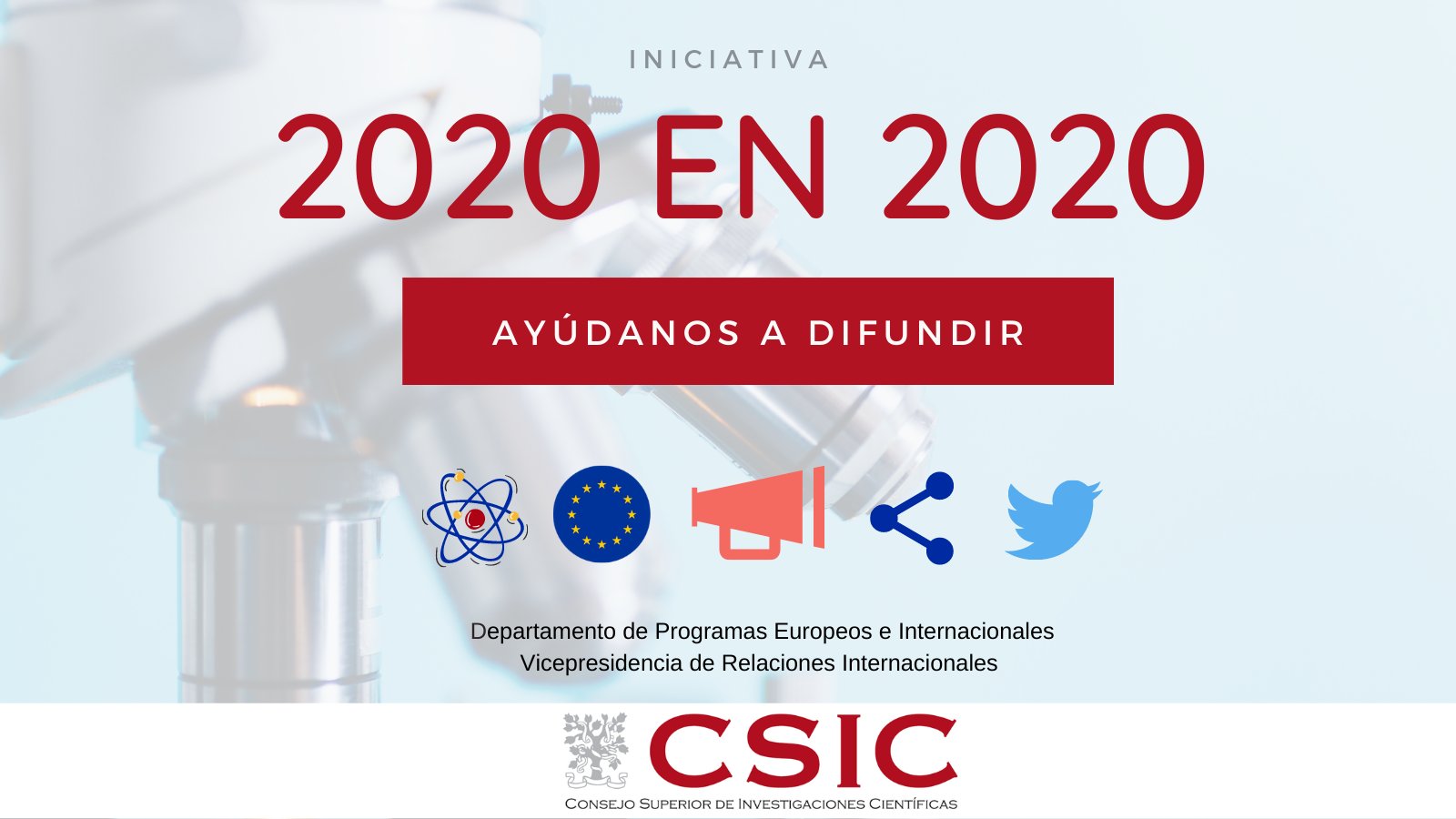
IFCA takes a look at the 23 projects it has developed within the framework of the European Horizon 2020 programme, as part of the "2020 in 2020" initiative promoted by CSIC
16th December 2020
Coinciding with the end of the European Union's Framework Programme for Research and Innovation, Horizon 2020, the Instituto de Física de Cantabria (IFCA, CSIC-UC) wants to promote visibility of European projects financed by the European Commission in which the institute participates.
Horizon 2020 is one of the largest research and innovation programmes in European Union, with a budget of almost 80 billion euros, for the period 2014-2020. IFCA has been involved in 23 of these projects, which follow three assets: from achieving sustainable agricultural systems in Africa, to creating a cloud of open science in Europe to house all the data from research community, or improving measurement systems to avoid future X-ray and gamma ray emissions to Earth.
- EOSC-SYNERGY, EOSC-HUB and COS4CLOUD: European Open Science Cloud - Expanding Capacities by building Capabilities.
This is one of the major initiatives funded by the European Commission to launch the European Open Science Cloud (EOSC): a universally accessible research data cloud. IFCA has received funding for, for example, the co-design of Citizen Observatory services for 'the cloud', or for the integration and management of new services of the EOSC Portal.
-Objective: To promote open science and innovation, creating a single online platform where research community can find, access and reuse data produced by other scientists and deposit, analyse and share private data. More information.
-Example: Researchers from IFCA and the Lisbon Engineering Laboratory have been able to analyse data from Sentinel-type satellites to investigate how coastlines change.
To learn more about Open Science you can view this informative talk by Fernando Aguilar, researcher of IFCA’s Advanced Computing group.
2. AfriCultuReS: Enhancing Food Security in AFRIcan AgriCULTUral Systems with the Support of REmote Sensing.
Applies geospatial science to sustainable agricultural development, natural resource management, biodiversity conservation and poverty alleviation in Africa.
-Objective: To design, implement and demonstrate an integrated agricultural monitoring and early warning system to support decision-making in the field of food security.
-Example: Biophysical and economic production climate information has been successfully obtained for various regions of Africa.
3. AHEAD: Integrated Activities for the High Energy Astrophysics Domain.
-Objective: To integrate european efforts in High Energy Astrophysics, promote its leadership and keep its research community and space observatories at the forefront. Also, to achieve a more rapid advancement of science involving high energy astrophysics, space-oriented instrumentation and to achieve state-of-the-art sensor technology in Europe.
-Example: Improved baseline modelling, cross-calibration and equipment feasibility studies to avoid future X-ray and gamma ray emissions to Earth. More information.
During this month of December a thread will be published on IFCA's Twitter account with these European projects that institute has developed during the four years of the 2014-2020 Horizon 2020 programme.
